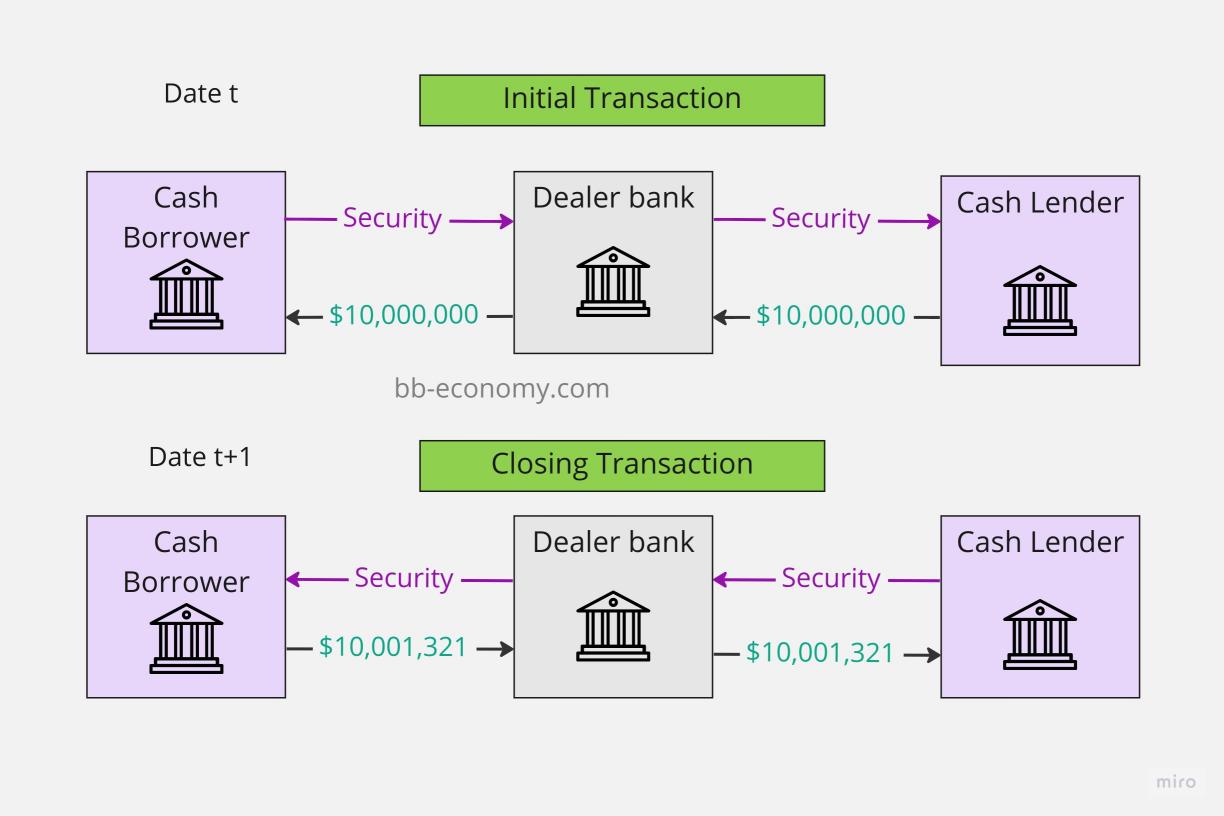Repo Tow Trucks For Sale: Your Comprehensive Guide to Affordable Opportunities typestruckssale.com
The world of commercial vehicles often presents unique opportunities for entrepreneurs and established businesses alike. Among these, the market for "Repo Tow Trucks For Sale" stands out as a compelling avenue for acquiring essential equipment at a potentially significant discount. Far from being merely discarded assets, repossessed tow trucks represent a dynamic segment where financial institutions, lending companies, or even private owners liquidate vehicles that have been defaulted on. For those looking to enter the towing industry, expand an existing fleet, or simply find a cost-effective workhorse, understanding this market is paramount.
This comprehensive guide will delve into the intricacies of purchasing a repo tow truck, offering insights into what they are, why they might be a smart investment, where to find them, and the critical steps to ensure you make an informed decision.
Repo Tow Trucks For Sale: Your Comprehensive Guide to Affordable Opportunities
What Exactly Are "Repo Tow Trucks"?
A "repo tow truck" is simply a tow truck that has been repossessed by a lender due to the borrower’s failure to meet their loan obligations. When a borrower defaults on payments, the financial institution that provided the loan legally reclaims the vehicle. Instead of holding onto these assets, lenders typically aim to recover their losses by selling them quickly, often through auctions or specialized dealerships.
Crucially, "repo" does not automatically mean "damaged" or "poorly maintained." While some repossessed vehicles may indeed show signs of neglect, many are in surprisingly good condition, having been regularly serviced before the default. The primary driver for their sale is the lender’s need to offload assets, not necessarily the truck’s inherent quality. This distinction is vital for potential buyers, as it means you can often find excellent value if you know what to look for.
Why Consider Buying a Repo Tow Truck?
The appeal of purchasing a repossessed tow truck extends beyond just the initial price tag. Several compelling reasons make them an attractive option:
- Significant Cost Savings: This is the most obvious benefit. Repo trucks are typically sold below market value compared to new or even conventionally used tow trucks of similar make, model, and year. This lower entry cost can be a game-changer for startups or small businesses operating on tight budgets.
- Immediate Availability: Unlike ordering a custom-built new truck, which can involve long lead times, repo trucks are available for immediate purchase and deployment. This can be crucial for businesses needing to quickly scale operations or replace a downed vehicle.
- Proven Workhorses: Many repossessed trucks have already proven their capabilities in the field. They come with existing mileage and operational history, giving you a sense of their durability, albeit with due diligence.
- Lower Depreciation: Since you’re buying at a reduced price, the initial depreciation hit has already been absorbed by the previous owner. This means your asset’s value will likely depreciate at a slower rate from your purchase point.
- Opportunity for Customization: A lower purchase price leaves more room in the budget for necessary repairs, upgrades, or customizations to better suit your specific operational needs.
Types of Repo Tow Trucks You Might Encounter
The "repo" designation applies to all types of tow trucks. Understanding the different categories will help you identify the right vehicle for your specific towing requirements:
- Wheel-Lift Tow Trucks (Self-Loaders): These are common for light to medium-duty towing. They use a boom and hydraulic system to lift a vehicle by its wheels, keeping the other two wheels on the ground. Ideal for car impounds, roadside assistance, and quick recoveries.
- Flatbed (Rollback) Tow Trucks: Featuring a hydraulic bed that can tilt and slide to the ground, allowing vehicles to be driven or winched onto it. Flatbeds are versatile, suitable for all-wheel-drive vehicles, damaged cars, luxury vehicles, and equipment transport. They come in various lengths and capacities.
- Integrated (Heavy-Duty) Tow Trucks: Designed for serious towing power, these trucks combine a boom and wheel-lift mechanism into a single unit, often with a heavier chassis. They are used for towing buses, tractor-trailers, RVs, and other large commercial vehicles.
- Hook & Chain Tow Trucks: While less common for modern repossession work due to potential damage to vehicles, some older repo trucks might still be chain-based. These are typically used for junk vehicles or situations where vehicle damage is not a concern.
Where to Find Repo Tow Trucks For Sale
Locating repossessed tow trucks requires knowing the right channels. These assets are sold through various avenues, each with its own characteristics:
- Specialized Commercial Vehicle Auctions (Online & Physical): These are perhaps the most common and effective places. Websites like IronPlanet, Ritchie Bros. Auctioneers, and various regional auction houses frequently list repossessed commercial vehicles, including tow trucks. Physical auctions allow for pre-inspection.
- Government and Bank Auctions: Financial institutions often liquidate their repossessed assets through dedicated sales or in partnership with auction houses. Check the websites of major banks, credit unions, and government agencies (like the U.S. Marshals Service or state surplus agencies).
- Used Commercial Truck Dealerships: Many dealerships specialize in used commercial vehicles and often acquire repo trucks directly from lenders or auctions. While prices might be slightly higher than at auction, dealerships often offer financing, reconditioning services, and a more structured buying experience.
- Online Marketplaces: Websites like eBay Motors, Craigslist, and Facebook Marketplace can list individual repo trucks. Be extremely cautious and always verify the seller’s legitimacy and the vehicle’s status.
- Tow Truck Companies & Fleet Sales: Some larger towing companies periodically sell off older units from their fleet. While not strictly "repo," these are often well-maintained and can be a good source of used trucks.
- Word of Mouth & Industry Networks: Networking within the towing industry can sometimes lead to direct sales from owners or lenders looking to sell quickly without going through an auction.
Key Considerations Before Buying
Purchasing a repo tow truck is a significant investment that requires thorough due diligence. Don’t let the allure of a low price overshadow critical inspections:
- Comprehensive Mechanical Inspection: This is non-negotiable. If you’re not a skilled mechanic, hire one specializing in commercial vehicles to inspect the engine, transmission, brakes, suspension, steering, and all major components. Look for fluid leaks, excessive rust, and signs of neglect.
- Frame Integrity: The frame is the backbone of any tow truck. Check for cracks, bends, or previous repairs that could compromise its structural integrity.
- Hydraulics and PTO System: Inspect the hydraulic lines, cylinders, pumps, and the Power Take-Off (PTO) system. These are critical for the boom, winch, and bed operations. Look for leaks, sluggish operation, or unusual noises.
- Electrical System: Test all lights, winches, warning lights, radio, and dashboard instruments. Electrical issues can be notoriously difficult and expensive to diagnose and repair.
- Tire Condition: Tires on commercial vehicles are expensive. Assess tread depth, even wear, and overall condition. Uneven wear can indicate alignment or suspension issues.
- Vehicle History Report (VHR): Obtain a CARFAX or similar report. This can reveal previous accidents, salvage titles, flood damage, odometer discrepancies, and past maintenance records.
- Clear Title and Liens: Ensure the seller has a clear title and that there are no outstanding liens on the vehicle. This is crucial for legal ownership.
- Mileage vs. Engine Hours: For commercial trucks, engine hours can sometimes be a better indicator of wear than mileage, especially for trucks that idle frequently.
- GVWR and Towing Capacity: Confirm the truck’s Gross Vehicle Weight Rating (GVWR) and its rated towing capacity match your intended use. Overloading can be dangerous and illegal.
- Existing Equipment Condition: Beyond the truck itself, inspect the winches, cables, chains, straps, safety lights, and any auxiliary equipment. Factor in replacement costs if they are worn or missing.
- Budget Beyond Purchase Price: Account for potential immediate repairs, reconditioning, insurance, registration fees, necessary permits, and any desired upgrades.
The Buying Process: A Step-by-Step Guide
Navigating the purchase of a repo tow truck can be straightforward if you follow a structured approach:
- Define Your Needs: What type of towing will you primarily do? What capacity do you need? What’s your realistic budget range?
- Set a Firm Budget: Include not just the purchase price but also estimated repair costs, insurance, registration, and any initial maintenance.
- Research Sources: Identify reputable auctions, dealerships, or online platforms where you can find suitable trucks.
- Pre-Inspection and Due Diligence: If possible, always physically inspect the truck. If buying remotely, request detailed photos, videos, and a comprehensive inspection report from a third party. Review the VHR.
- Attend Auctions or Negotiate: If at an auction, set a maximum bid and stick to it. If buying from a dealer or private seller, be prepared to negotiate based on your inspection findings.
- Secure Financing (If Needed): While cash is king for repo deals, some commercial lenders specialize in used equipment financing. Be prepared with pre-approval.
- Complete Paperwork: Ensure all titles, bills of sale, and transfer documents are correctly filled out and legally binding.
- Plan for Transport/Delivery: If buying from an auction or out of state, arrange for transportation or plan to drive the truck yourself, ensuring it’s roadworthy.
Potential Challenges and Solutions
While repo trucks offer great value, they come with potential pitfalls. Being aware of them allows for proactive solutions:
- Challenge: Hidden Mechanical Issues.
- Solution: Thorough pre-purchase inspection by a qualified mechanic, detailed vehicle history reports, and budgeting for initial repairs.
- Challenge: No Warranty or "As-Is" Sale.
- Solution: Understand that you’re buying it as-is. Factor in a contingency fund for unexpected repairs shortly after purchase.
- Challenge: Cosmetic Flaws and Wear & Tear.
- Solution: Assess if the cosmetic issues are superficial or indicative of deeper problems. Factor reconditioning costs (paint, interior cleaning) into your budget if desired.
- Challenge: High Competition at Auctions.
- Solution: Do your research on market values, set a firm maximum bid, and be prepared to walk away if the price goes too high. Patience is key.
- Challenge: Unclear Title or Liens.
- Solution: Always verify the title’s clarity and ensure all liens are satisfied before purchase. Never complete a sale without a clean title.
Tips for Success in Buying a Repo Tow Truck
- Don’t Rush: The best deals often require patience. Wait for the right truck at the right price.
- Bring a Pro: If you’re not an expert, always bring a qualified commercial truck mechanic for inspections. Their fee is a small investment compared to potential repair costs.
- Know Your Local Regulations: Be aware of specific licensing, weight limits, and equipment requirements for tow trucks in your operating area.
- Network: Talk to other tow truck operators. They can offer insights into reliable makes/models, common issues, and good sources for used equipment.
- Factor in Post-Purchase Expenses: Remember insurance, fuel, routine maintenance, and potential upgrades. A cheap truck isn’t cheap if it constantly breaks down.
Estimated Price Range Table for Repo Tow Trucks For Sale
It’s crucial to understand that prices for repo tow trucks vary wildly based on make, model, year, mileage, engine type, specific features, overall condition, and market demand. The table below provides estimated ranges for different types and conditions, but these are for illustrative purposes only and should not be taken as definitive quotes. Always conduct your own market research for current pricing.
| Truck Type | Condition (General) | Estimated Price Range (USD) | Key Considerations |
|---|---|---|---|
| Light Duty (e.g., Wheel-Lift) | Poor (Needs Major Repair) | $5,000 – $15,000 | Engine, transmission issues; significant rust; non-functional equipment. |
| Fair (Operational, Needs Work) | $15,000 – $30,000 | Cosmetic wear; minor mechanical fixes; older model. | |
| Good (Ready to Work) | $30,000 – $55,000 | Well-maintained; lower mileage for age; minor wear. | |
| Excellent (Low Mileage, Newer) | $55,000 – $80,000+ | Recent model; very well-maintained; specialized features. | |
| Medium Duty (e.g., Flatbed) | Poor (Needs Major Repair) | $10,000 – $25,000 | Frame damage; major engine/transmission overhaul needed. |
| Fair (Operational, Needs Work) | $25,000 – $45,000 | Hydraulic leaks; electrical issues; high mileage. | |
| Good (Ready to Work) | $45,000 – $80,000 | Reliable; good working condition; some cosmetic flaws. | |
| Excellent (Low Mileage, Newer) | $80,000 – $150,000+ | Late model; extensive features; minimal wear. | |
| Heavy Duty (e.g., Integrated) | Poor (Needs Major Repair) | $20,000 – $50,000 | Catastrophic engine/transmission failure; structural damage. |
| Fair (Operational, Needs Work) | $50,000 – $100,000 | Major hydraulic repairs; significant engine hours. | |
| Good (Ready to Work) | $100,000 – $200,000 | Solid mechanicals; well-maintained heavy-duty components. | |
| Excellent (Low Mileage, Newer) | $200,000 – $350,000+ | State-of-the-art features; very low hours; pristine. |
Note: These prices are estimates and can fluctuate significantly based on brand reputation (e.g., Peterbilt, Freightliner, Kenworth), specific model, engine type, transmission type, additional features (e.g., remote control, extra winches), and the region of sale. Auction prices can sometimes be lower than dealership prices.
Frequently Asked Questions (FAQ) About Repo Tow Trucks
Q1: Are repo tow trucks reliable?
A1: Reliability varies greatly. Some are perfectly reliable, having been well-maintained before repossession. Others might have been neglected. Thorough inspection is key to determining individual reliability.
Q2: Can I finance a repo tow truck?
A2: Yes, it’s possible. While direct bank loans might be harder for "as-is" auction purchases, many commercial equipment lenders specialize in financing used vehicles, including repossessed ones. Dealerships often offer financing options.
Q3: What’s the average lifespan of a tow truck?
A3: With proper maintenance, a commercial tow truck can last for 15-20 years or more, often accumulating hundreds of thousands of miles. The lifespan depends heavily on the initial quality, how it was used, and ongoing maintenance.
Q4: Do repo trucks come with a warranty?
A4: Almost never. Repo trucks are typically sold "as-is, where-is" with no warranty expressed or implied. This is why a pre-purchase inspection is absolutely critical.
Q5: What permits do I need to operate a tow truck?
A5: This varies by state, county, and city. You’ll likely need a commercial driver’s license (CDL) depending on the truck’s GVWR, specific tow truck operating permits, business licenses, and appropriate commercial vehicle insurance. Check with your local Department of Motor Vehicles (DMV) and city/county offices.
Q6: Is it hard to find parts for older repo trucks?
A6: For common makes and models (e.g., Ford, Chevy, Freightliner chassis with popular tow bodies), parts are generally available. However, for very old or obscure models, finding specialized parts might be challenging or require custom fabrication.
Conclusion
The market for repo tow trucks presents a compelling opportunity for those seeking to acquire essential equipment without the hefty price tag of new vehicles. By understanding what these trucks are, where to find them, and, most importantly, how to conduct thorough due diligence, buyers can unlock significant cost savings and quickly put a valuable asset to work. While the "as-is" nature of these sales demands careful inspection and a contingency budget for potential repairs, the potential for a high return on investment makes the pursuit of repo tow trucks a worthwhile venture for the discerning buyer. With careful planning and a commitment to thorough research, your next tow truck could be a repossessed gem waiting to be discovered.



